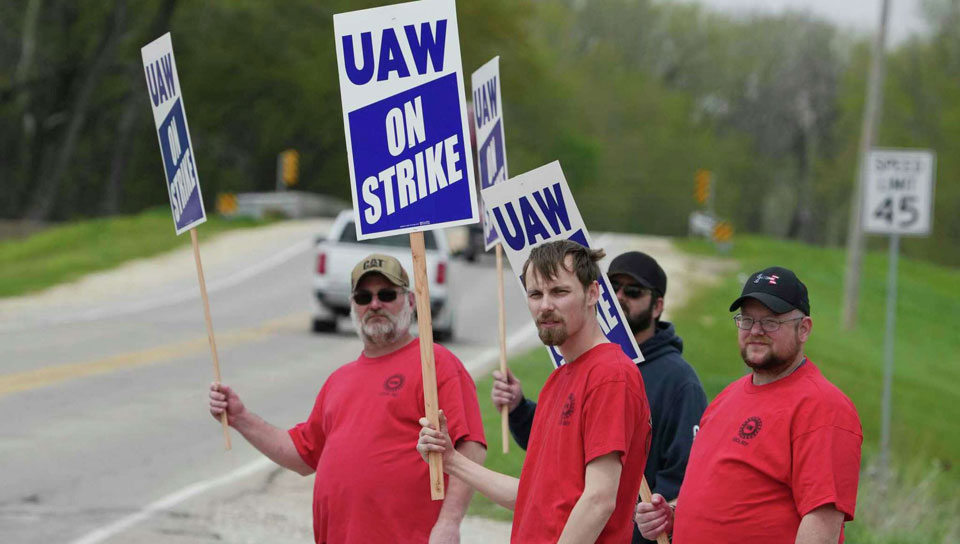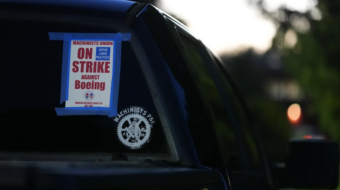
DETROIT —After three weeks on picket lines due to a company-forced strike, the bargaining strategy of agricultural and construction equipment maker CNH International is clear, the Auto Workers say: “Starve out” the workers to force an inadequate contract on them.
And there’s no way the 1,000 workers who usually toil at CNHI’s U.S. plants in Racine, Wis., members of Local 180, and Burlington, Iowa (Local 807), are giving in to such pressure tactics, which UAW believes the firm’s union-buster is recommending.
But they also may face a long haul, too. At the strike’s start, Local 807 President Nick Guernsey told his members to expect to miss three to six months of work. “I think what’s going to get CNH Industrial back to the table is when they start losing money, and they’ll probably start feeling it at four weeks,” he added.
CNHI, a multinational conglomerate, is headquartered in London, incorporated in Holland, and controlled by bankers from Italy’s Agnelli family, the erstwhile owners of Fiat. It forced the workers to strike on May 2, UAW President Ray Curry said.
Key issues are “an improved standard of living, retirement benefits, and a better work environment,” the union adds.
Now the company’s tactics have only introduced more poison. UAW Vice President Ray Browning, head of its Agricultural Implements Department said CNHI recognizes it must legally bargain with the union, but is only going through the motions of doing so.
“CNHI entered negotiations with a predetermined bargaining strategy based on the principles of fear and intimidation,” Browning said on May 25 in response to a company characterization.
“After a month of” CNHI “offering little to resolve bargaining issues submitted by UAW members themselves, the UAW utilized the authority granted by an overwhelming majority of our membership” and was forced to strike, he explained.
CNHI “immediately deployed a scab workforce they assembled prior to the contract deadline in anticipation of a strike that was quite predictable based on their posture at the bargaining table.
“It is the hope of the company to starve out UAW members on the picket lines to accept an inadequate collective bargaining agreement.”
UAW’s website disclosed neither UAW’s numbers nor CNHI’s. But Browning said workers want to “earn a decent living, retire with dignity, and “establish fair work rules.”
Browning also noted CNHI got the U.S. government to declare its workers “essential” during the early months of the coronavirus pandemic, thus forcing them to work through it. He did not say if CNHI adequately protected the workers in Burlington and Racine from contracting the virus. But that experience also influenced the workers’ views.
“We stay committed to bargaining until our members’ goals are achieved,” Browning said. UAW retirees, along with community members in Iowa and Wisconsin, have flocked to help the workers forced to strike, the union adds.










